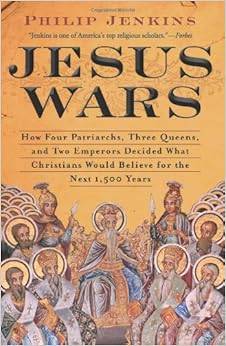Ok, so Jesus is divine and not human and divine.
I use to believe in the trinity, but I no longer do. Jesus is very introspective as he likes to spend much time in meditation and prayer, which he teaches to his disciples. So Jesus is human.
In the years before the introduction of the Christian religion, Roman inhabitants of the empire worshipped the
god Mithra for close to well over 400 years. Mithraism was regarded as the primary closing religion of the Roman Empire, and later eventually becoming the principal ranked competing rival to Christianity after its uprising.
The first written mention of
Mitra dates back around 3,500 years in the Hindu Vedas, and then assumingly spread to Persia and reached west throughout the entire length of the Roman border to Scotland. It is still regarded as one of the most universal religions and greatest mystery cults in the Western World. Its mysteries that spread by the Romans likewise had a large significant importance on the development of early Christianity during its first four centuries.
Both
Roman Mithraism, like
Iranian Mithraism were cults of loyalty toward its king. Many prominent Roman figures were among its initiates, and were encouraged by various Roman emperors, such as Commodus, Aurelian, Diocletian, Galerius and Licinius.
In 307, a temple was even dedicated to Mithra and he officially became the "Protector of the Empire". The birthday of Mithra furthermore occurred during the Winter Solstice that celebrated the
Natalis Solis Invicti on
December 25th. This large celebration was known for signaling the birth of a young Sun god who sprang from a rock or a cave in the form of a newborn infant.
His triumph and ascension was celebrated at Easter, and as being the god of light, he also preformed the usual assortment of miracles; such as raising the dead, healing the sick, and casting out devils. Before returning to heaven, he celebrated a last supper with his 12 disciples on the zodiac. In memory of this, his worshippers partook in a sacramental meal of bread marked with a cross. It was called
mizd, Latin
missa, Greek
maza, English
mass.
In 313 CE, the official birthday of
Jesus in alignment with Mithra also became December 25th. In the year 375 CE,
Pope Julius I likewise declared the Nativity of the birth of
Jesus as December 25th to align followers of the Sun god Mithra. This event became the very motivation as to why
Jesus received his official birth anniversary on December 25th in accordance of the ancient pagan resurrecting solar godman in the Roman Empire, as before that, no one knew of his historical birth. St. Augustine even went as far as declaring that the priests of Mithra worshipped the same deity as he did.
Paul equally attested to
knowing nothing about Jesus' birth, ministry and healings, which was alarming, as the origins of Christianity itself derive from
Paul, and not
Jesus. Paul doesn't even quote anything that
Jesus is alleged to have said, nor did any of
Jesus' original twelve disciples write of his teaching.
Afterwards, St.
Augustine wrote that Christians ought not to celebrate
Jesus' birth, like the heathens do on account of the Sun, but rather on account of god who made the Sun. The early
Jesus was regarded so much a Sun god himself to the ancients, that the term
Jesus of Nazareth (Nazaroth) in Hebrew is actually
the twelve signs of the zodiac. No city by this name existed during this time. A church council further declared that it would be wrong to celebrate the birthday of
Jesus as though he were a King Pharaoh.
Eventually though, this festival of "
Christmas" became a civic holiday by the
emperor Justinian where the events became so customary that it begun marking the beginning of the ceremonial year for Christians. The use of giving gifts, holly, mistletoe, yule logs, fruitcake, ringing bells, candles, wassail bowls, and decorating a tree however all derived from early pagan customs.
Many European countries still call this celebration "Yuletide" (or wheel of the Sun) A harvesting festival celebrated at the end of the year. None of which derive from Christian origins.
 ) but because of his sins, he will hopefully see that it is his Father alone and not this world who truly loves him.
) but because of his sins, he will hopefully see that it is his Father alone and not this world who truly loves him.
